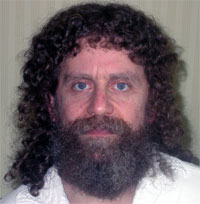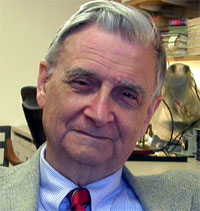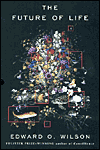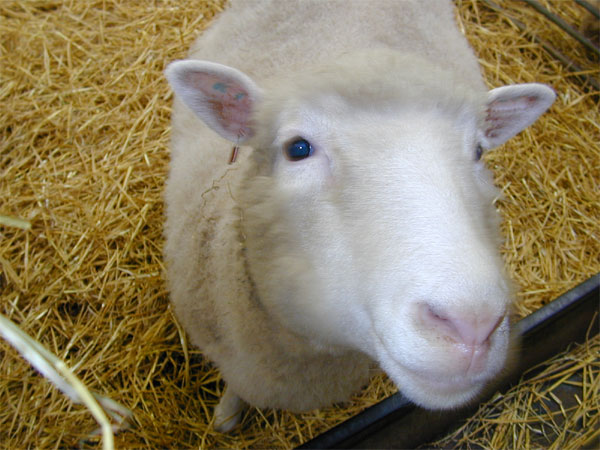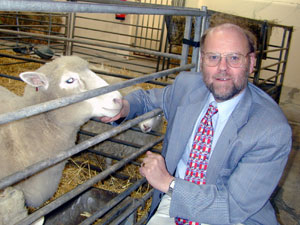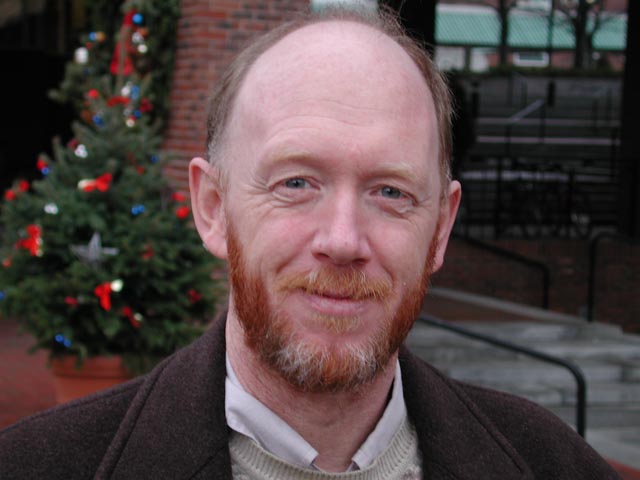The substance of what I'm interested in is that it's the genes that are related to behavior, and how they work. The big insight is that genes are the agents of nurture as well as nature. Experience is a huge part of a developing human brain, the human mind, and a human organism. We need to develop in a social world and get things in from the outside. It's enormously important to the development of human nature. You can't describe human nature without it. But that process is itself genetic, in the sense that there are genes in there designed to get the experience out of the world and into the organism. In the human case you're going to have genes that set up systems for learning that are not going to be present in other animals, language being the classic example. Language is something that in every sense is a genetic instinct. There's no question that human beings, unless they're unlucky and have a genetic mutation, inherit a capacity for learning language. That capacity is simply not inherited in anything like the same degree by a chimpanzee or a dolphin or any other creature. But you don't inherit the language; you inherit the capacity for learning the language from the environment.
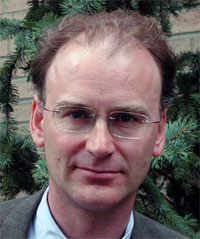

Introduction
"For the first time in four billion years," says Matt Ridley, "a species on this planet has read its own recipe, or is in the process of reading its own recipe. That seems to me to be an epochal moment, because we're going to get depths of insight into the nature of human nature that we never could have imagined, and that will dwarf anything that philosophers and indeed scientists have managed to produce in the last two millennia."
Ridley is an original thinker with deep insights who is in the top ranks of people writing about science. He also happens to be an English aristocrat who lives in Newcastle-upon-Tyne in a stately home on beautiful grounds. He embodies the best of that English tradition in that he uses his prestige, influence and his resources in the interests of science. Such patronage, and I use the term in the good sense, includes founding, and serving as chairman of the International Centre for Life, Newcastle-upon-Tyne’s science park and visitor centre devoted to life science. The centre is highly regarded for its serious research in genetics.
—JB
MATT RIDLEY'S 23 pairs of chromosomes, together with a doctorate form Oxford University, equipped him for a career as a science journalist with The Economist and the Daily Telegraph. His books include Nature Via Nurture: Genes, Experience, and What Makes Us Human; Red Queen: Sex and the Evolution of Human Nature; Genome: The Autobiography of a Species in 23 Chapters; Origins of Virtue: Human Instincts and the Evolution of Cooperation; and editor of The Best American Science Writing 2002.
Matt Ridley's Edge Bio page
He is chairman of the International Centre for Life, Newcastle-upon-Tyne’s science park and visitor centre devoted to life science. He has ingeniously combined his chromosomes with those of his wife, the neuroscientist Dr Anya Hurlbert, to produce two entirely new human beings. His books have been shortlisted for six literary awards. He has been a scientist, a journalist, and a national newspaper columnist. He is also a visiting professor at Cold Spring Harbor Laboratory in New York.
Matt Ridley presents his latest book: Nature Via Nurture
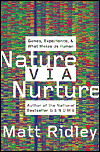
Human nature is indeed a combination of Darwin's universals, Galton's heredity, James's instincts, De Vries's genes, Pavlov's reflexes, Watson's associations, Kraepelin's history, Freud's formative experience, Boas's culture, Durkheim's division of labor, Piaget's development, and Lorenz's imprinting. You can find all these things going on in the human mind. No account of human nature would be complete without them all .... But—and here is where I begin to tread new ground—it is entirely misleading to place these phenomena on a spectrum from nature to nurture, from genetic to environmental. Instead, to understand each and every one of them, you need to understand genes. It is genes that allow the human mind to learn, to remember, to imitate, to imprint, to absorb culture, and to express instincts. Genes are not puppet masters or blueprints. Nor are they just the carriers of heredity. They are active during life; they switch each other on and off; they respond to the environment. They may direct the construction of the body and brain in the womb, but then they set about dismantling and rebuilding what they have made almost at once—in response to experience. They are both cause and consequence of our actions. Somehow the adherents of the "nurture" side of the argument have scared themselves silly at the power and inevitability of genes and missed the greatest lesson of all: the genes are on their side.




